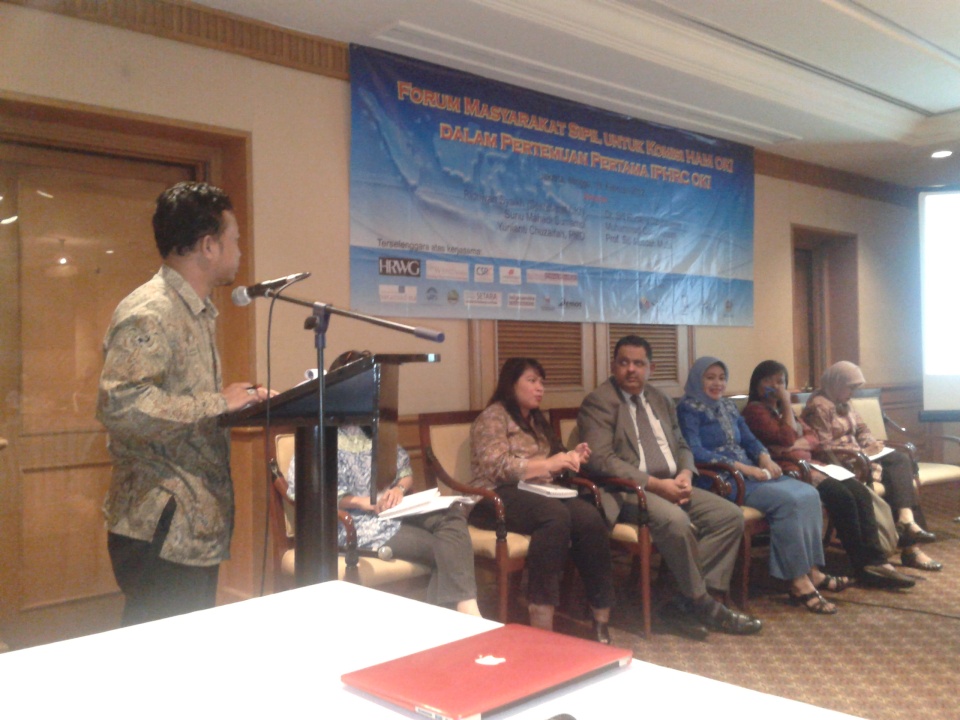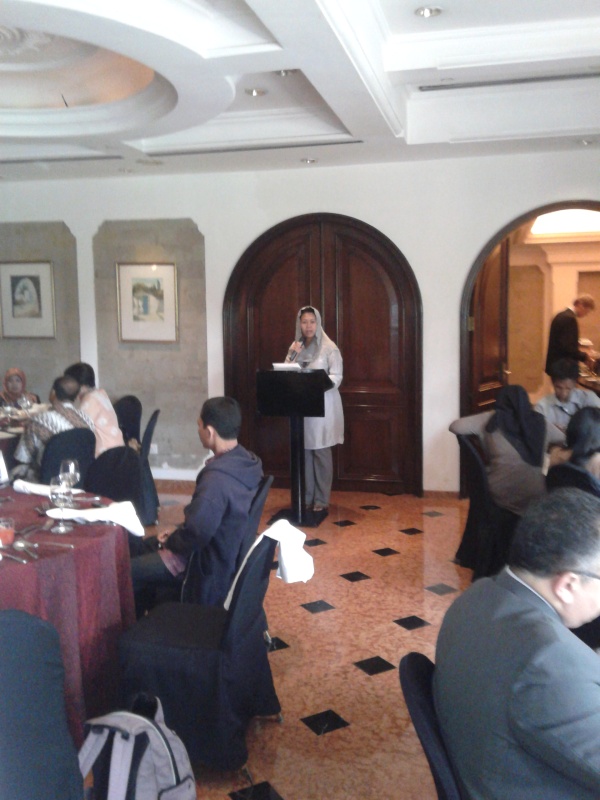Ashgabat, Turkmenistan
11-12 MAY 2012
Your Excellency Mr. Gurbanguly BERDIMUHAMEDOV the President of Turkmenistan,
Your Excellency Antonio Guterres, The United Nations High Commissioner for Refugees,
Your Excellencies Ministers and Heads of Delegation,
Distinguished Delegates,
Distinguished Observers and Guests,
Ladies and Gentlemen,
It gives me great pleasure to address you as we all gather here today in the opening session of the OIC International Ministerial Conference on Situation of Refugees in the Muslim World. At the outset, I wish, on behalf of all of us, to express our sincere thanks and deep appreciation to H.E. the President of Turkmenistan, the Government and People of Turkmenistan for hosting this important conference. At the same time, I express my appreciation for the High Commissioner for Refugees and my utmost satisfaction for the effective partnership between our two organizations, in a process that successfully led to the convening of this Conference. We also thank all OIC Member States and institutions and others who have made various contributions and in different forms, to facilitate the holding of this historic humanitarian event.
Your Excellencies,
Ladies and Gentlemen,
When we took a decision within the OIC to hold this Conference on Refugees, we established a partnership with the Office of United Nations High Commissioner for Refugees, in order to ensure that this humanitarian endeavor serves our noble objectives and translates the will of our member states into actions that satisfy our moral, legal and deeply rooted humanitarianism. Providing asylum, protecting refugees and assisting them in compassion and conviction are fundamental pillars in our Islamic tradition. Assisting and protecting refugees, irrespective of their faith, color or ethnic origin ,is not only a legal obligation, but also a moral and a religious duty as stipulated in these teachings and embodied in deeds throughout history within the Muslim World. The idea of protecting ” Almustamin” or asylum seeker was never compromised in these teachings and practices. Hence, the extradition of “Almustamin” was prohibited, a notion which was much later in history, came to be known in international refugee law as the principle of “non-refoulment” a corner stone of modern refugee law.
In essence, there is total compatibility between refugee principles in Islam and those of our modern day international refugee law. This doctrinal base, has been a strong driving force in our efforts to play an effective role in the humanitarian arena, not only within the domain of our member states, but also, whenever possible, beyond that and in the world at large.
Your Excellencies,
Ladies and Gentlemen,
There are over 17 million refugees and displaced persons within the OIC Member countries, and that includes some protracted refugee situations . We should tirelessly continue to make every effort possible , to address these refugee and displacement situations, with provision of assistance and protection, as the case may be, in a purely humanitarian effort . We should also engage , with the will of all concerned governments, in durable and lasting solutions to these refugee situations, in order to end the suffering of these human beings and enhance social harmony, peace ,stability and development. Our common political will and coordinated efforts are corollaries for achieving this objective, and I must hasten to add here that this is an international problem that goes beyond state or even continental borders and its solutions require solidarity of the international community while cooperating with all sovereign governments concerned. In this light, we see the objective of this Ministerial Conference as a historic opportunity to shed ample light on the refugee problem in the Muslim World, mobilize efforts to address this humanitarian problem and find ways and means of enhancing these efforts. Such collective and well coordinated approaches will no doubt generate solutions that address the immediate humanitarian needs and aim at the root causes within a long term and durable arrangements for the interest of all.
Your Excellencies,
Ladies and Gentlemen,
It is evident that refugee problems are not limited to the Muslim World and they have been experienced in all regions, in all cultures and in all religions. Our endeavors within the OIC is not meant to overdramatize this problem in our midst, but rather meant to give it its proportionate and realistic dues. We all know that we do live in a less- than- perfect world community and coexistence amongst states and communities requires interaction of different cultures in an environment of multiculturalism. Hence, refugee situations continue to be products of intolerance, xenophobia, injustice, denial of basic rights, conflict over resources domestically or across state borders and instances of foreign intervention. Accordingly, we look forward to see that, root causes are addressed consciously, objectively and systematically. Standards should therefore be set without subjective variations, while addressing these problems, and I can assure you that the OIC member states have been exerting strenuous efforts to assist in refugee and displacement situations without any shadow of subjective factors. And we will continue these efforts within the OIC and we will maintain coordination and collaboration, whenever possible, with UNHCR and all other humanitarian organizations dedicated to this humanitarian cause.
Your Excellencies,
Ladies and Gentlemen,
As we consider the cases of refugees in the Muslim World , we should underscore the plight and injustice to which the Palestinian refugees continue to be subjected. Their situation, being the most protracted situation of refugees in the world since the late 1940s remained unresolved and their rights continue to be usurped unless a political settlement is concluded within the UN resolutions and the Arab Initiative, guaranteeing their legitimate rights. Thus, theirs is not just a refugee humanitarian issue, but it is a political cause that should be dealt with accordingly. The OIC member states, continue to make all possible efforts for a just and lasting peace in the Middle East.
Your Excellencies,
Distinguished Delegates,
Ladies and Gentlemen,
I wish to remind us all that this Conference is indeed a land mark event in our search for solutions to problems of true humanitarian nature. To this end, we reiterate our commitment to a strategic partnership with UNHCR and we will continue to find ways and means of appropriate and effective cooperation with them and others to achieve our noble humanitarian objectives. For this reason, we hope that declaration of this conference would help us charting the way forward.
Finally, Let me take the opportunity, to reiterate that our OIC Charter and our guiding principles enable us to remain an effective force of wisdom, peace and fruitful dialogue, in a world faced by constant economic, political and social challenges. Indeed, no one would dispute the fact that refugees are amongst the most vulnerable populations and they deserve our serious attention. It is not only an attention of the moment, but it is an attention of our political resolve, an attention of provision of lasting solutions , in a spirit of international burden sharing. In sum, let us turn the refugee challenges into opportunities for action.
I wish all, fruitful, substantive and inspiring deliberations and above all a successful outcome.
I thank you.
Suorce: OIC Secretariat General










